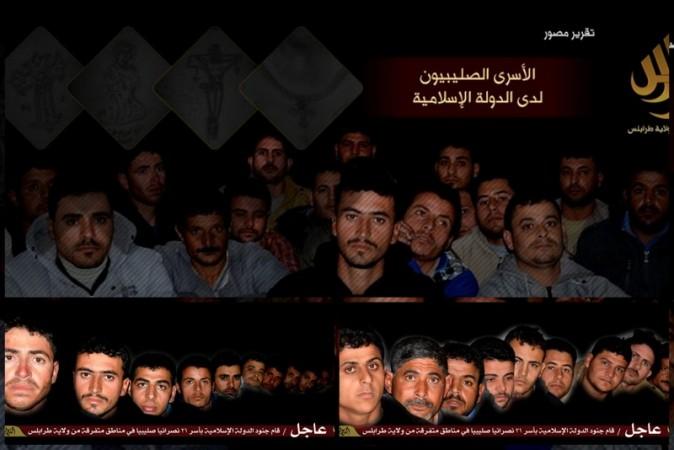
An Islamic radical group affiliated with the Islamic State (ISIS) has claimed responsibility for kidnapping 21 Coptic Christians, sharing pictures of the captives on Monday.
The Egyptian Christian workers were reportedly taken captive last month from the central Libyan city of Sirte. "The soldiers of the Islamic State in the province of Tripoli hold captive 21 Christian crusaders," the photo caption read. The ISIS-affiliate has, of now, only claimed responsibility for the kidnapping; it has made no demands as yet.
A CBS report citing Abu Makar, an Egyptian priest from the workers' hometown of Samalout in southern Egypt, confirmed that the pictures were of the captives. A Coptic activist, Magdi Malak, said that the pictures have been authenticated by the families of the captives as well.
The Egypt's foreign ministry reportedly said in a statement that the Egyptian citizens were abducted in recent weeks in two separate instances in Libya. Libya attracts a huge number of Egyptians workers, especially in the construction sector.
In the last three years, since Libya descended into chaos after a US-backed uprising toppled the country's longtime dictator Muammar Qaddafi, scores of Egyptian Christians have been targeted by Islamist radical militants.
Last year in February, the bodies of seven Coptic Christians were found near Benghazi, an area held partially by Islamist militias. In March 2013, dozens of Egyptian Christians – accused by extremists of proselytising – were tortured at a Benghazi detention centre.
There have been several reports that have found that the Islamic State has setup training camps in the country. In December last year, the head of the US Africa command, General David Rodriguez, had also warned of ISIS setting up base in the country's east.
"It's mainly about people coming for training and logistical support right now, for training sites," he had said. "Right now it's just small and very nascent and we just have to see how it goes."

















